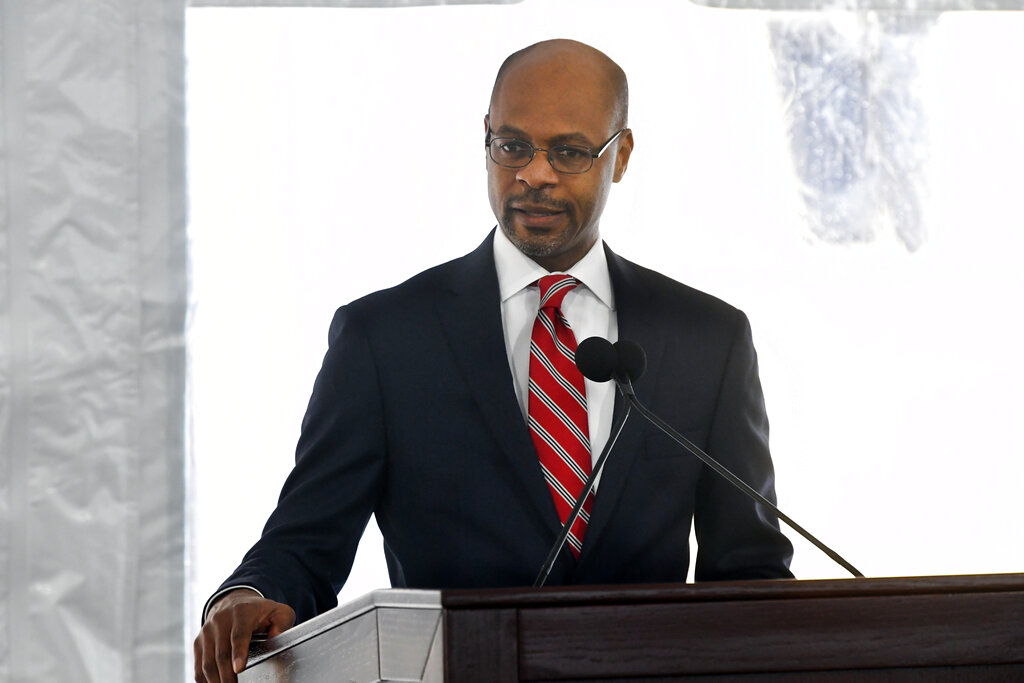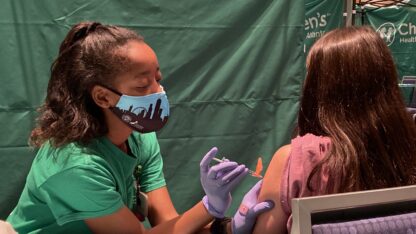Georgia Judges: Pandemic Could Backlog Jury Trials For Years

Harold Melton, Chief Justice for the Supreme Court of Georgia, joined “Closer Look” host Rose Scott on Wednesday’s edition of the program.
John Amis / Associated Press
Georgia’s court system could take years to dig out of piled-up cases with jury trials delayed because of the coronavirus pandemic, judges told state lawmakers Wednesday.
“The judges across the state are very mindful of the backlog,” state Supreme Court Chief Justice Harold Melton said during budget hearings. “I personally want to open up jury trials as soon as we can, considering all the factors that have to be considered.”
Melton estimated the courts would need one to two years to work through delayed cases, but Superior Court Judge Wade Padgett, president of the Council of Superior Court Judges, said he thought it would be more like three years. It’s hard to even know how many delayed superior court cases there are statewide because Georgia has no statewide tracking system.
“Whenever we’re allowed to resume, we will be busier than we’ve ever been,” Padgett said.
Under state law, Melton has been renewing a declaration of judicial emergency every 30 days, limiting what court cases can be conducted in person.
For a period late last year, Melton allowed some jury trials to go ahead, but he said he thought it was necessary to shut them down again because of rising infection rates. Even during that time, conducting trials was difficult, Padgett said, recounting jury selection that took place in Augusta’s civic center and a courtroom that was physically re-arranged to spread jurors out instead of having them sit elbow-to-elbow in the jury box.
“You don’t want to create some strange aquarium of jurors with plexiglass,” Padgett said.
Melton emphasized that judges have been busy holding some kinds of hearing, using more online technology than ever before.
“We’ve learned some things in the process,” Melton said. “There are some tools I think we will use going forward after COVID. I doubt we’ll have the jail transfers you are used to seeing. We’ve learned we can accomplish these goals and objectives using virtual technology in a much safer and cost effective manner.”
Melton and Padgett asked lawmakers to restore funding for support services and supplies. Padgett said courts couldn’t even afford a subscription to an online law research service needed to help write opinions. Superior Court judges also want another $700,000 to eliminate unpaid furlough days that judges have been taking and $500,000 more to pay senior judges to do more work.
Overall, courts, prosecutors and public defenders are all seeking more money, in some cases to directly make up for cuts last year, or in other cases to expand services. Judicial agencies want nearly $12 million more overall, a roughly 4% increase on a $300-million-plus budget.
Other justice system agencies aren’t asking for more money. The state Department of Corrections and Department of Juvenile Justice both say they will give 10% pay raises to their employees by redirecting existing funds
“That’s going to be a real shot in the arm for the Georgia Department of Corrections and for the well-deserving men and women who have been on the front line during this pandemic, fighting this invisible enemy,” said Corrections Commissioner Timothy Ward.
Salaries for starting corrections officers would rise from $27,936 to $30,730.
Juvenile Justice Commissioner Tyrone Oliver said the department would freeze 297 vacant positions to finance the pay increase.








